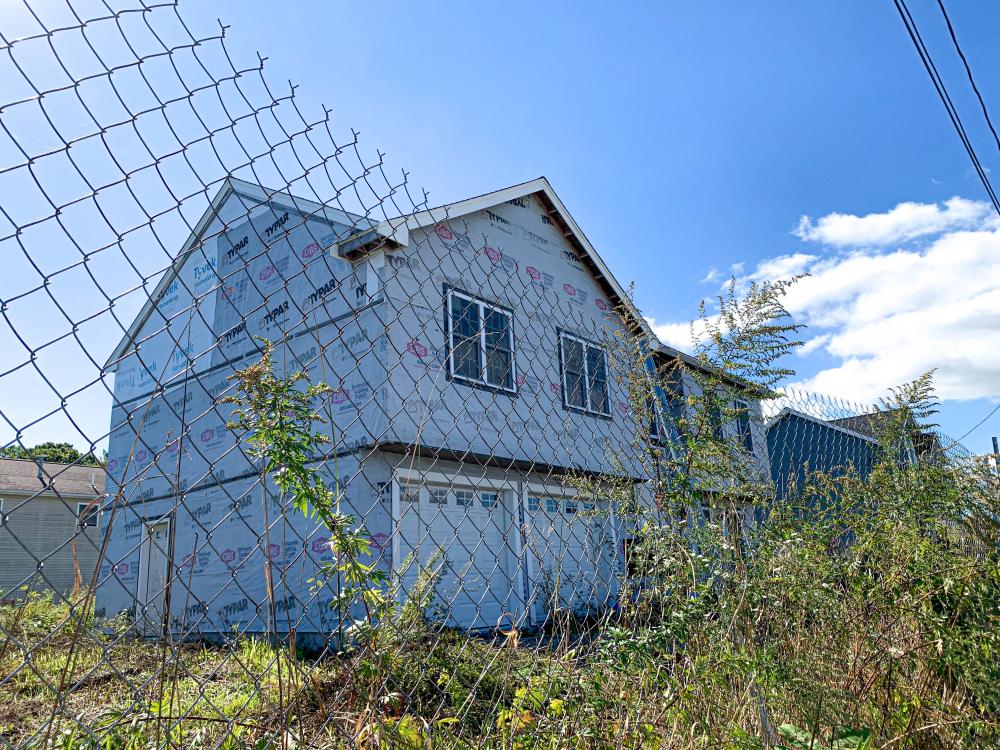Bliss Corner cleanup postponed to spring
Cleanup of toxic soil at five Bliss Corner properties will officially begin in the coming spring and will last up to five months, according to the U.S. Environmental Protection Agency.
The process was initially set to begin this past November at one or two properties, but EPA project lead John McKeown said things had to be postponed due to a fairly rainy fall and administrative issues with setting up a staging area only to likely abandon it in potential harsh winter weather conditions.
“We didn’t want to start a big mess and leave it all winter long,” McKeown said.
The estimated price of the EPA’s cleanup at the five properties will be $2.8 million.
The announcement came during a public information session held in conjunction with the Massachusetts Department of Environmental Protection on Dec. 2, in which McKeown estimated that excavation would start in the neighborhood either in late April or early May.
“The drier the climate, the better,” he said. “The best time to start these projects is in the spring.”
In September, the federal agency authorized “removal action” — a type of cleanup used to mitigate the threats to human health and the environment — in the South Dartmouth neighborhood after identifying dangerously high levels of lead and polychlorinated biphenyls — also known as PCBs — in the soil surrounding the five homes.
All five properties are currently occupied. The EPA refuses to identify the parcels due to privacy concerns, but the property owners have been notified, said EPA public coordinator Kelsey Dumville.
During the spring cleanup, agents will excavate contaminated soil to a maximum depth of three feet below ground level or until the state’s standard for lead (200 parts per million) or total PCB (1 parts per million) is achieved.
After the contaminated soil is transported to a staging area, the lots will be filled with clean dirt and topsoil. Any trucks transporting the soil will be decontaminated to prevent any potential spread of the hazardous materials.
The EPA reports that PCBs cause cancer in animals and potentially in humans. In addition to causing cancer, animals exposed to PCBs have shown other health effects, including impacts on their reproductive, immune and endocrine systems.
McKeown said the cleanup will be conducted on a house-by-house basis.
“If we start your property, that will be our primary focus,” he said. “We won’t have your property open for five months — it should be a few weeks max.”
The agency has no plans to expand beyond the scope of the five properties.
John Handrahan, the deputy regional director for MassDEP’s Southeast Regional Office, said the state will work with the Town of Dartmouth to determine the next steps in cleaning up the neighborhood.
According to the agency, soil around 20 Bliss Corner properties were well above the federal lead level. One home also exceeded the federal level for PCBs.
McKeown said that the agency will cover the $2.8 million cost through its “Superfund program,” which provides the EPA cleanup funding when there is no viable responsible party to perform cleanups or reimburse the government.
Liability over the cleanup has been a subject of dispute between Dartmouth officials and federal and state environmental agencies.
Earlier this year, MassDEP issued “Notice of Responsibility” letters to Dartmouth and New Bedford municipal governments, writing that the agency “has reason to believe” that the Town of Dartmouth “arranged for and/or otherwise caused the historic disposal of waste and fill material” at various Bliss Corner properties in the 1950s.
Dartmouth and New Bedford officials refuted the allegations. In their response to the EPA, Quincy-based attorney Roy P. Giarrusso argued that MassDEP “provides absolutely no factual or legal basis for suggesting that the Town somehow arranged for, or transported waste to, the five unspecified parcels.”
The City of New Bedford, through Boston-based lawyer C. Dylan Sanders, wrote to the U.S. Environmental Protection Agency that “the City is not in a position to assume responsibility for performing response actions for such a significant area of another municipality.”
According to archived Board of Health minutes, Dartmouth officials willingly approved the dumping of hazardous materials in Bliss Corner during the 1950s.
Throughout the decade, the documents show the board regularly allowed the City of New Bedford to have trucks “dump tin cans and ashes” in various properties prior to the neighborhood’s residential development.
Handrahan said the state department is “continuing to engage the city and the town” to resolve the issue of liability.
“We are still in an investigatory phase — always will be,” he said. “The more information we get, the better this will be all around.”













